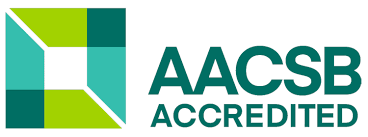Professional Certifications
While the Department of Accounting and Finance does not have programs specifically geared toward these certifications, the coursework for our majors provides an excellent framework. UWF students are encouraged to demonstrate their proficiency by earning these and other certifications.
Certified Internal Auditor (CIA)
Educational Requirements
Candidates for CIA certification must possess a bachelor's degree or its equivalent from an accredited college-level institution. The registrant must have completed the equivalent of approximately 120 semester hours or 180 quarter hours of degree credits. Internal auditing work experience may be taken into account when a non-degree candidate has completed more than 90 percent of the academic credit hours needed for a degree. An official transcript, written proof of completion of a degree program, or a copy of a diploma must be submitted with the registration or forwarded to The Institute of Internal Auditors by the college or university.
Character Reference
Candidates must submit a character reference from a responsible person such as a supervisor, a manager, an educator, or a Certified Internal Auditor. Individuals providing references must have known the candidate for at least three months.
Work Experience
Candidates must have 24 months of internal auditing (or equivalent) experience. A master's degree or related business experience can be substituted for one year's work experience. Documentation showing proof of experience can be sent with the candidate's application or later when criteria have been met.
The CIA Examination
- Part I: Internal Audit Process
This part of the exam focuses on the theory and practice of internal auditing. - Part 2: Internal Audit Skills
This part includes specific skill emphasis on problem solving and reasoning ability, communication skills, and dealing with participants. - Part 3: Management Control and Information Technology
This section deals with basic business disciplines essential to the practice of internal auditing. - Part 4: The Audit Environment
This section examines traditional topic areas such as financial accounting, finance, economics, internal developments relevant to the practice of internal auditing, government, taxes, and marketing.
Candidates who have successfully passed the CPA, CMA, or CISA examination can receive recognition credit for this part of the exam. For more information on becoming a Certified Internal Auditor, please visit the Institute of Internal Auditors website.
Certified Financial Planner (CFP)
Education Requirements
Applicants must complete the curriculum established by the CFP Board. The curriculum includes college courses such as investments, estate planning, individual income tax, retirement planning, risk management, insurance and finance. In addition to the required curriculum, the CFP Board recommends courses in area of finance, accounting, economics, computer programming and communications. The curriculum can be completed by three different educational paths: registered program, transcript review, or challenge status. Regardless of which educational path you choose, it is important to remember that the CFP curriculum topics remain the basis for the Certification Examination.
Examination
After successfully completing the education requirement, applicants are eligible to apply for the Certification Examination. The exam is a 10-hour exam, divided into one four-hour session and two three-hour sessions over a span of two days. The Certification Examination is designed to assess your ability to apply your financial planning education to financial planning situations in an integrated format. The exam is administered three times a year, on the third Friday and Saturday in March, July, and November.
Experience
The experience requirement focuses on individual, personal financial planning-related experience. The experience component is designed to provide the public with the assurance that you understand the counseling nature of personal financial planning. The general requirement is three years, performed before or after successful completion of the Certification Examination.
Ethics
After completing the first three requirements, an applicant will receive a Declaration Packet, which includes an ethics statement form and a license application with a bill for an initial license fee. Prior to certification, applicants will be required to acknowledge the right of the CFP Board to enforce its Code of Ethics and Professional Responsibility through due process described in its Disciplinary Rules and Procedures.
For more information on becoming a Certified Financial Planner, please visit the Financial Planning Association website.
Certified Public Accountant (CPA)
Educational Requirements
Candidates for CPA certification must possess a bachelor's degree or its equivalent from an accredited college-level institution. The registrant must have completed the 150 hour rule (described below) and one year of professional experience.
150 Hour Rule
The 150 Hour Rule was passed in 1979 and was implemented on 8/1/83. The rule states that the applicant must complete 150 semester hours of education with at least a Baccalaureate degree and a concentration in accounting, as a condition of being eligible to sit for the CPA examination.
Certified Management Accountant and Certified in Financial Management (CMA/CFM)
Educational Requirements
Candidates for CMA and/or CFM certification must apply to the Institute of Management Accounting. All applicants must be of good moral character, be employed or expect to be employed in the management accounting area, hold a bachelor's degree or its equivalent from an accredited college-level institution and be a certified public accountant.
CMA and CFM Exams
The exams are given semiannually in the second week in June and December on Wednesday, Thursday and Friday. The CMA and CFM exams consist of four parts, of which three are the same for both.
- Part I
"Economics, Finance and Management" cover microeconomics, macroeconomics, the international business environment, the domestic institutional environment of business environment, working capital policy and management, long-term finance and capital structure, organizational structures, management and communication. - Part II
Covers topics unique to management accounting and financial management. The second part of the CMA exam is "Financial Accounting and Reporting," which covers the deployment of accounting standards, advanced topics on the preparation of financial statements, and external auditing. On the CFM exam, Part 2 is "Corporate Financial Management," which consists of use of financial statements, advance topics in corporate financial management, risk management, the external financial environment, and the accounting standard-setting environment. - Part III
"Management Reporting, Analysis, and Behavioral Issues," covers cost measurement, planning, control and performance evaluation, behavioral issues. - Part IV
"Decision Analysis and Information Systems," tests for decision theory and operational decision analysis, information systems, and management controls.
Experience
After passing the exams, each individual must complete two continuous years of professional experience in management accounting and/or financial management before the individual become certified. They must satisfy this requirement before or within seven years of passing the exams. They must also complete 30 hours of continuing education activity each year in order to remain in good standing.
For more information on the CMA and CFM examinations, please visit the IMA's CMA: The Essential Credential website.
Chartered Financial Analyst (CFA)
Educational Requirements
- Bachelor's degree or equivalent education or work experience
- Agree to abide by the AIMR Code of Ethics and Standards of Professional Conduct
- Have evidenced a high level of professional, financial, business and personal conduct
- Concurrent membership in AIMR and in local FAF Society
- Review for minimum of three years professional work experience
Exams
A test is required before certification is granted by the Certified Financial Planning Board of Standards. A series of three six hour examinations covering four areas: ethical and professional standards, tools and inputs for investment valuation and management, asset classes, and portfolio management and wealth planning. The examinations are given once a year and are different levels which must be taken in a sequential order; only one test may be taken a year. A CFA is typically an investment professional, such as a portfolio manager.
Organizations
The organization granting designation is the CFA Institute. They are a global organization with offices located in the Americas, Asia-Pacific, and Europe regions. Visit the CFA Institute website to learn more. All members must adhere to the CFA Institute's Code of Ethics and Standards of Professional Conduct.
Chartered Financial Consultant (ChFC)
Educational Requirements and Experience
A minimum of three years experience in the financial industry is required. An undergraduate degree or graduate degree from an accredited education institution may qualify for one year business experience. The required experience must immediately precede the date of the award. Completion of ten independent self-study courses which include the following: fundamentals of financial planning, income taxation, insurance investments and estate with emphasis on general financial planning. Professional Achievement in Continuing Education (PACE) is a join continuing education program of the American College and The American Society of CLF and ChFC. PACE requires 60 hours of continuing education credit every two years. This is mandatory for those who received their designation after July 1, 1989, and for others who voluntarily agree to participate in PACE.
Exams
There is an exam before designation is granted. There is 20 hours of supervised examinations consisting of 10 two hours examinations administered at computerized testing sites throughout the country. Each of the ten courses concludes with a two hour exam.
Organizations
The organization granting designation is The American College. They are located at 270 S. Bryn Mawr Avenue, Bryn Mawr, PA 19010. Telephone number is 1.215.526.1000. Other affiliate member groups include American Society of CLU and ChFC. A code of ethics is enforced by both The American College, which can suspend or revoke the right to use the designation, and the American Society, which can revoke membership.








